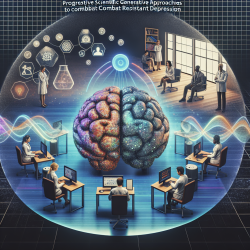The landscape of immigration policy in the United States has long been fraught with challenges and controversies. The recent research article titled "New Immigration Policy Proposal (NIPP) for America" sheds light on potential reforms that could reshape how practitioners in education and therapy approach their roles. This blog aims to explore how these proposals can enhance practitioner skills and encourage further research in the field.
The Current State of Immigration Policy
The research highlights a critical issue: both major political parties have struggled to create a comprehensive immigration policy that addresses the needs of the nation and its immigrant populations. This has led to policies that adversely affect non-white immigrants and African Americans, resulting in disparities across various sectors, including education.
Key Proposals from NIPP
- National Online Immigration Center (NOIC): A proposed online platform that would expedite asylum applications using artificial intelligence for quick determinations.
- Employment Conditions: Approved asylum seekers would receive a five-year work permit with specific employment conditions to prevent wage undercutting.
- Taxation and Economic Contributions: Immigrants would contribute additional taxes to support public services and community empowerment.
Implications for Practitioners
The NIPP presents several opportunities for practitioners to enhance their skills:
- Cultural Competency: Understanding diverse backgrounds and experiences is crucial. Practitioners can improve their cultural competency by engaging with immigrant communities and learning about their unique challenges.
- Legal Compliance: Staying informed about changes in immigration policy ensures that practitioners can provide accurate guidance and support to students and families affected by these policies.
- Advocacy and Support: Practitioners can play a vital role in advocating for fair policies and supporting immigrant students through tailored educational programs.
The Role of Further Research
The NIPP encourages ongoing research into the impacts of immigration policies on education systems. Practitioners are urged to engage in or support research initiatives that explore:
- The effects of immigration policies on student performance and mental health.
- The role of online platforms like NOIC in streamlining legal processes.
- The economic contributions of immigrant communities to local economies.
This research can inform policy decisions and improve educational practices, ensuring that all students have equitable access to quality education.










